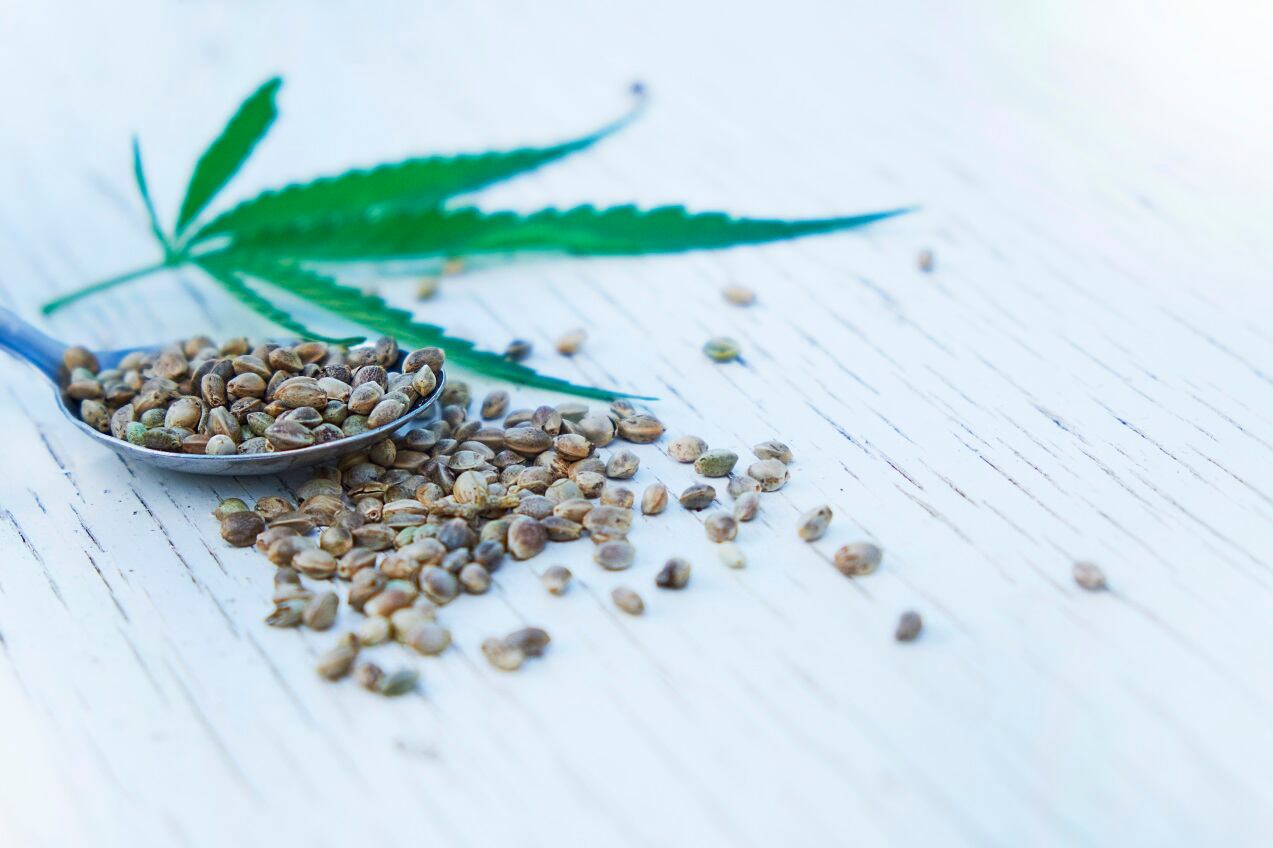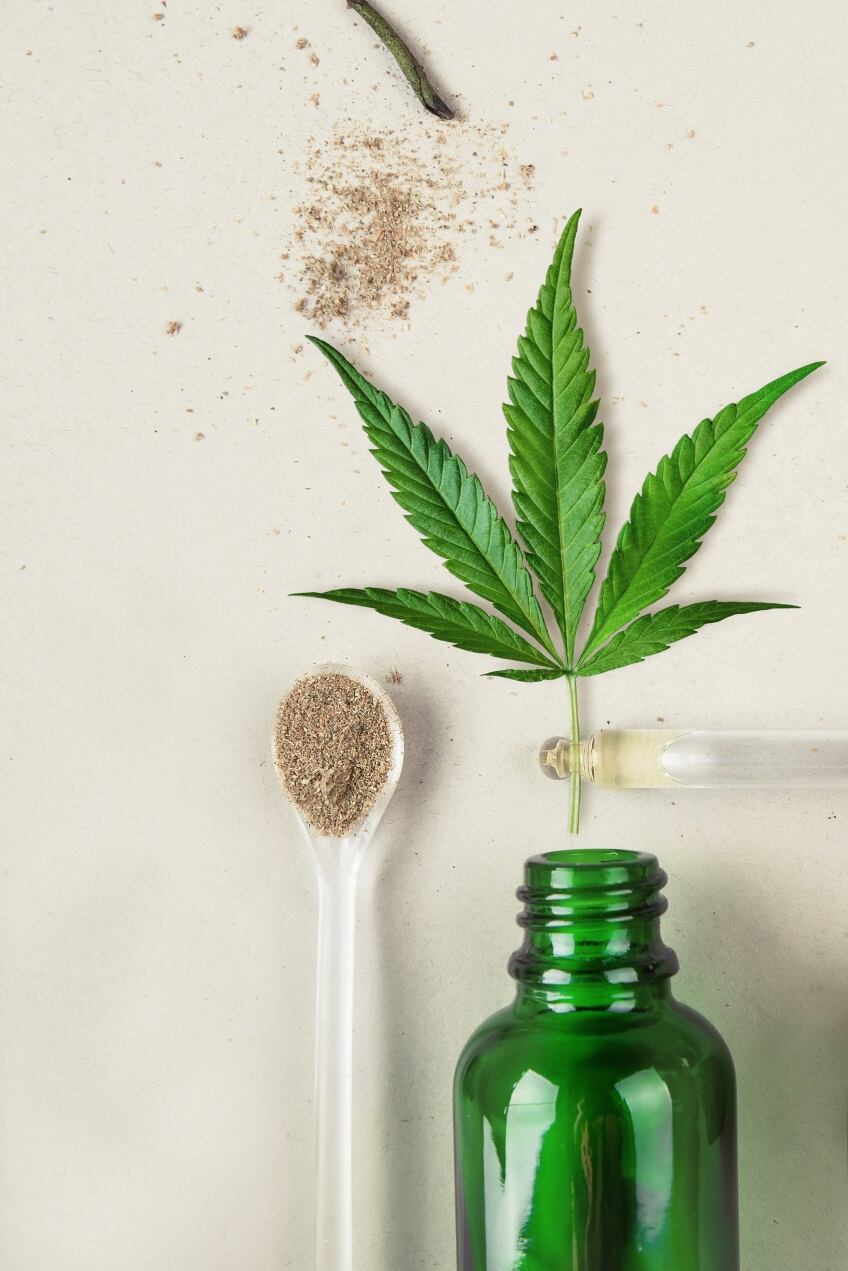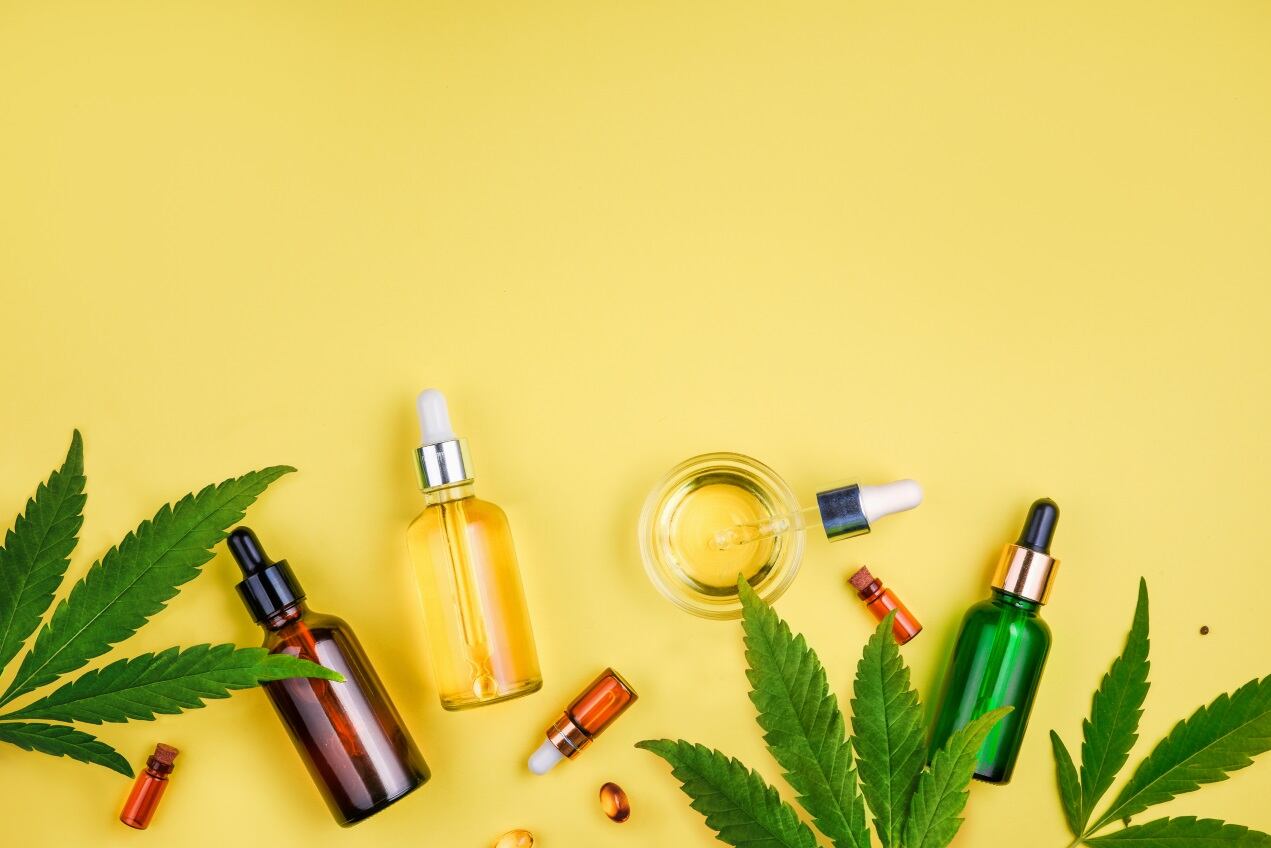Hemp and cannabidiol (CBD) are rapidly becoming the darlings of the functional food space. According to analysts at Grand View Research, the global cannabidiol market size was estimated to be worth almost €2bn in 2018 and is expected to expand at a CAGR of 32.6% through to 2025.
But despite a massive jump in interest, there is still a lot of uncertainty surrounding the sector.
“There is indeed a lot of confusion in this area,” Agropro's CEO and co-founder Skirmantas Nikstele told FoodNavigator.
Hemp: A healthy plant-based protein
Of the two ingredients, hemp, is certainly the more well-known – although its potential as a nutritious plant-based protein seems yet to be fully realised.
Hemp, or industrial hemp, is a strain of the cannabis sativa plant species that is grown specifically for the industrial uses of its derived products. It can be used in a diverse variety of products – from paper to clothes – but in food it has particularly strong potential in plant-based formulations.
"If we look specifically at hemp, a lot of the excitement is centred around its versatility. Nearly every part of a hemp plant can be used for a huge range of purposes. Everything from clothing, paper, biofuel and plastics to health foods, skincare products and supplements,” Nikstele noted.
Hemp seeds contain almost as much protein as soybeans. In every 30 grams of seeds there are 9.46 g of protein, data from the USDA reveals. Importantly, hemp seeds are a complete source of protein, meaning that they provide all nine essential amino acids.
Hemp seeds are a source of essential fatty acids, such as alpha-linolenic acid (ALA), which is an omega 3. Hemp also contains vitamin E, magnesium, phosphorous and potassium.
“Hemp seeds are a nutritious and tasty addition to most people's pantries,” Nikstele suggested. "The omega 3 to omega 6 ratio in hemp seed oil is 3:1 - this is nearly perfect. Omega 6 comes from red meat, which we eat too much of, so hemp oil is a great way to ‘compensate’ with omega 3 and lead a healthier and more environmentally friendly lifestyle."
Given that environmental concerns are seen as a key driver of the plant-based movement, the ‘kicker’ for hemp is its positive environmental message, Nikstele believes.
According to Agropro, hemp can be grown without the use of herbicides, pesticides or fungicides. Hemp is in the top five out of 23 crops for biodiversity, performing better than ‘all major crops’ such as wheat, maize or rapeseed.
As discourse around the climate crisis continues to escalate, it is also worth noting that hemp crops sequester carbon. The hemp grower revealed that one hectare of industrial hemp can absorb 15 tonnes of CO2. In comparison, agricultural land use emits on average approximately three tonnes of CO2 per hectare. Hemp’s rapid growth also makes it one of the fastest CO2-to-biomass conversion tools available, the company revealed.
"We live in an increasingly environmentally conscious world. The kicker for hemp is that it is carbon negative, uses relatively little water and can be grown on marginal land. Consumers can be safe in the knowledge when they buy hemp products, they are helping to fight climate change.”

CBD: ‘It’s important not to get carried away by the hype’
CBD is a rapidly expanding market, but its status and health associations are a little more complicated.
Types of CBD
The two most common types of CBD on the market today are CBD isolate and full-spectrum CBD, Agropro revealed.
CBD isolate is 99.9% pure CBD.
Full-spectrum CBD, on the other hand, contains 'everything the plant contains', including the terpenes, cannabinoids, flavonoids, and fatty acids found in hemp. These components all have 'therapeutic value' of their own and can help create what’s know as the ‘entourage effect’.
Broad-spectrum CBD is a 'little bit of both'. Broad-spectrum CBD is full-spectrum CBD without any THC. It offers all the entourage benefits associated with full-spectrum CBD, without any chances of THC being ingested.
CBD is typically found in the form of an oil but there is also water-soluble CBD which can be used to produce CBD infused drinks. Using proprietary, state-of-the-art technology, CBD particles are broken down into tiny nanoparticles that are so small they can eventually infuse into water or other liquids.
CBD is a phytocannabinoid discovered in 1940. It is one of some 114 identified cannabinoids in cannabis plants and accounts for up to 40% of the plant's extract. Unlike THC, which is responsible for cannabis’s ‘high’, CBD is not psychoactive.
The cannabinoid has been linked to a number of positive health outcomes. In medical uses, robust evidence points to its use in treating some symptoms of childhood epilepsy, such as Dravet syndrome and Lennox-Gastaut syndrome (LGS).
In the FMCG space, CBD is commonly associated with reducing anxiety, insomnia and different types of chronic pain. For instance, a 2016 study from the European Journal of Pain used an animal model to show CBD applied on the skin could help lower pain and inflammation due to arthritis. Another study in the same publication demonstrated the mechanism by which CBD inhibits inflammatory and neuropathic pain.
“CBD has been shown to help tackle a range of health issues such as anxiety and it provides a welcome natural basis to a new range of cosmetic products,” Nikstele told this publication.
However, with much research into CBD's impact on health still in its early stages, Nikstele stressed it is important not to get carried away.
"I think when any new range of products start to quickly gain in popularity it is important not to get carried away with the hype. This mantra applies for both producers and consumers. Hemp seeds, for example, have proven health benefits and nutritional qualities that are independently verified - its benefits do not need to be embellished by any unproven claims.
"CBD products are a little trickier to classify. There have been studies into its positive impact on conditions such as joint pain and anxiety. However, the sheer range of products CBD is being added to and the number of claims that have been associated with it should be taken with a pinch of salt.
“CBD is undoubtedly a very flexible and beneficial product. However, consumers should be cautioned against believing it is some form of 'wonder drug' - there is no such thing. Producers should also be wary about over promising and under delivering. The result will be disappointed consumers and a fall in confidence and demand.
“We, as an industry, should only promote the scientifically proven benefits of CBD and hemp products - because there are already plenty - and help to fund new research that will determine if some of the more anecdotal claims regarding what they can do are true."
How are hemp-extracts like CBD made?
- Cold pressing: The most simple extract from hemp fruiting tops is hempseed oil.
- Ethanol extraction: Using alcohol to treat whole fruiting tops (infructescense) and leaves.
- CO2 extraction: Using carbon dioxide to treat whole fruiting tops (infructescences) and leaves. Produces a highly concentrated pure oil extract.
- Fat extraction: Can easily be used for home-made preparation.
- Bio-fermentation: Still in the early stages of development, some biotech companies are experimenting with fermentation as a way to produce cannabinoids.
CBD’s legal status: ‘The biggest headache in 2020’
Adding to the challenges of manufacturers who want to leverage CBD as a functional ingredient in the health and wellness space is global regulatory uncertainty, which is ‘even trickier’ market by market, Nikstele observed. Unlike hemp – which is legal in the EU and other markets – the legal status of products containing CBD is far from clear.
In the US, for example, the federal government's Food and Drug Administration (FDA) states ingestible CBD is not permitted – but this position is not enforced. Meanwhile, the new Farm Bill would seem to make all hemp products legal at a federal level. “Hence, certain states seem to turn a ‘blind eye’ to the FDA’s position and allow the CBD industry to grow exponentially. Each CPG producer needs to take a calculated approach and evaluate the legal environment and risks state-by-state,” Nikstele said.
The situation in the European Union is no less confusing. “The European Commission recently announced that CBD falls under the Novel Food category, meaning that no CBD food sales are allowed before certain authorisation procedures are completed. This can take between one and three years. But each EU member state has the right to have an alternative position - which allows for CBD food products to be sold.”
Circumstances in the UK are even less clear-cut, he continued. “Since the UK is preparing for Brexit, its government took a passive approach towards the EU regulations and has so far allowed CBD products to be sold in the market. For this reason, most ‘early’ CBD food players that ‘lost the EU market for 1-3 years’ are now trying to make up for this set back in the UK. But nobody knows what the UK government’s position will be after Brexit. Therefore, producers cannot make a safe bet on this market either.
"The biggest ‘headache’ in 2020 will be navigation of these regulatory icebergs."

Hemp & CBD ‘only going to increase in popularity’
Despite the regulatory headwinds, Nikstele is confident in the outlook for both CBD and hemp.
"I think hemp seeds as a health food has great sticking potential. This is as much down to people becoming more aware of the environmental impact of the products they buy as it is about it being a healthy and nutritious foodstuff.

“CBDs are also only going to increase in popularity - this is as much about their exotic nature in the eyes of consumers as it is about their untapped potential.”
The hemp supplier predicts that as these products continue to make their way into the mainstream of FMCG we will see the market narrow to a ‘tighter range’ of products that have a proven track record when it comes to health benefits. However, he added: “Undoubtedly, some clever producer will add hemp or CBD to a product we haven't even considered yet and it will gain huge appeal - that is the nature of an innovative and fast-moving sector.”
Just as the number of products and categories associating with CBD benefits are likely to thin, Nikstele also expects to see consolidation in the number of food makers active in hemp and CBD as larger brands enter the fray.
“Larger brands will undoubtedly enter the market. We're really only at the beginning of this cycle of disruption. With so many start-ups making money it's only a matter of time before the bigger brands decide it is a commercial imperative to get involved.
“I think what might be a factor in stopping some brands taking a chance is the legislative and culture legacy of CBD and hemp. Put simply, they might be too conservative or think that their consumer base might reactive negatively to a tangential association with cannabis. We know that these perceptions are changing quickly and so too is the legal environment surrounding the entire industry. My feeling is that when a few of the larger brands enter, and there is no negative reaction, the rest of these food brands will quickly follow suit."

